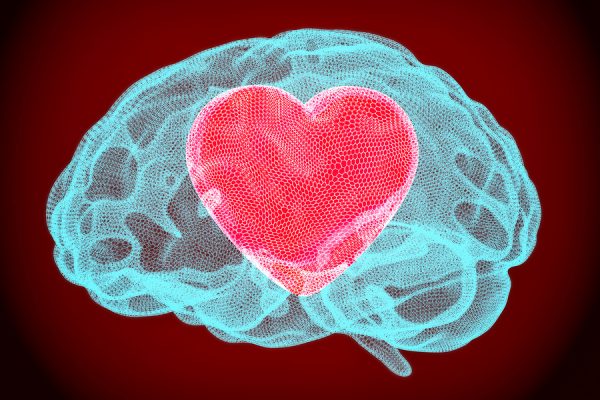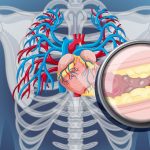In the world of health supplements, minerals are boring. They aren’t new and exciting anti-aging discoveries that everyone wants to get their hands on. Instead, they’ve been forgotten.
Unless it’s calcium for bones, nobody really thinks about them anymore.
But that doesn’t mean they aren’t vital to your good health.
For example, magnesium is responsible for over 300 systems that regulate biochemical reactions in your body, including muscle and nerve function, blood sugar and blood pressure.
When levels are chronically low, it disrupts these systems. This can lead to a number of chronic health diseases, including diabetes, hypertension, coronary heart disease and osteoporosis.
Plus, magnesium is absolutely critical when it comes to maintaining a normal heart rhythm. So when magnesium levels are low, you’re more likely to experience an irregular heartbeat, higher blood pressure and accelerated plaque build-up. A magnesium deficiency could even increase your risk of sudden cardiac death by more than 50%.
We also know that lower magnesium levels are associated with smaller brain volumes and larger white matter lesions. These are both indicators of dementia, which is something we all want to avoid.
All in all, this makes “boring” magnesium a powerful mineral when it comes to both your physical and mental well-being. But, unfortunately, just about half of U.S. adults are consuming less magnesium than recommended.
Unless you enjoy eating a lot of nuts, seeds, beans and green veggies, your magnesium levels are probably below par.
You can find out what your levels are by asking your doctor for an “RBC magnesium test.” It’s the best way to check and much more accurate than the “total serum magnesium test.”
If your levels are low, I generally recommend taking 5 mg of magnesium per pound of body weight. Take it in divided doses throughout the day. Look for ones that end in “ate”… as in glycinate, threonate, malate, gluconate and so forth. The citrate version is very useful for moving your bowels.
But magnesium isn’t the only heart and brain mineral Americans are running short on…
98% of Us Don’t Get Enough of this Forgotten Mineral
One of the most overlooked nutritional deficiencies today is potassium. As crazy as it might sound, latest estimates indicate that more than 98% of U.S. adults aren’t getting enough potassium each day. Thus, it stands to reason that nearly everyone here in the U.S. has insufficient levels of this heart-healthy mineral.
Potassium has many important roles in your cardiovascular health. It not only helps keep your blood pressure at normal levels. It can also help prevent hardening of the arteries.
Plus, potassium works together with calcium and magnesium to “charge up” the electrical tissue in your body. Without that “charge,” your heart muscle wouldn’t be able to contract or hold a steady beat. In other words, healthy potassium levels are absolutely necessary to regulate heart contractions.
It also works to counteract the negative effects of sodium in your diet.
This is an important point, because a high sodium intake impairs cognitive function and increases dementia risk. So when you can offset the effects of sodium by getting more potassium, it’s great for your brain.
This was proven to be true in a December, 2022 study that showed adding more potassium in the diet was significantly associated with higher cognitive scores and a lower risk of deteriorating memory. And when people replaced 1,000 mg of sodium with 1,000 mg of potassium, the effects were even better.
And don’t forget. Potassium isn’t just a necessary part of the electrical signaling in your heart, but in brain signaling too. When that signaling is disrupted due to low potassium levels, it can result in memory impairment, disorientation and confusion.
But here’s the thing.
Since too much potassium can be as dangerous as too little, I don’t recommend supplementing with potassium unless you are advised to do so by your physician. However, getting more of it in your food is a no-brainer.
It’s not hard. Just eat more beans, avocado, cantaloupe and artichoke. Mangoes, sweet potatoes and pears are also good choices.
Calcium isn’t Just for Bones
Calcium is well-known to protect bone health, so everyone loves the idea of it. But most people don’t realize how many other systems it provides support to.
It works with magnesium and potassium to maintain electrical activity in your heart and transmission of nerve pulses. It also works together with them to power up your brain.
When adequate levels of all of all three of these minerals are taken together, they have been shown to reduce the risk of all causes of dementia. Particularly vascular dementia, which is caused by an impaired blood supply to the brain.
So don’t forget your minerals! They are at the forefront of your heart and brain health… and so many other biological processes that your body needs to sustain a long and healthy life.
SOURCES:
Swaminathan R. Magnesium metabolism and its disorders. Clin Biochem Rev. 2003 May;24(2):47-66.
Kieboom BCT, et al. Serum Magnesium and the Risk of Death From Coronary Heart Disease and Sudden Cardiac Death. J Am Heart Assoc. 2016 Jan; 5(1): e002707.
Alateeq K, Walsh EI, Cherbuin N. Dietary magnesium intake is related to larger brain volumes and lower white matter lesions with notable sex differences. Eur J Nutr. 2023 Mar 10. Epub ahead of print.
Liu W, Xing S, Wei F, Yao Y, Zhang H, Li YC, Liu Z. Excessive Dietary Salt Intake Exacerbates Cognitive Impairment Progression and Increases Dementia Risk in Older Adults. J Am Med Dir Assoc. 2023 Jan;24(1):125-129.e4.
Na X, Xi M, Zhou Y, Yang J, Zhang J, Xi Y, Yang Y, Yan H, Zhao A. Association of dietary sodium, potassium, sodium/potassium, and salt with objective and subjective cognitive function among the elderly in China: A prospective cohort study. Global Transitions. 2022;(4):28-39.
Hong, E. Hypokalemia and Psychosis: A Forgotten Association. Am. J. Psychiatry Resid J. 2016, 11, 6–7.
Ozawa M, Ninomiya T, Ohara T, Hirakawa Y, Doi Y, Hata J, Uchida K, Shirota T, Kitazono T, Kiyohara Y. Self-reported dietary intake of potassium, calcium, and magnesium and risk of dementia in the Japanese: the Hisayama Study. J Am Geriatr Soc. 2012 Aug;60(8):1515-20.



